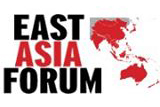 [Kyla Tienhaara and Belinda Townsend, East Asia Forum, Link] On 2 May 2016, US President Barack Obama published an op-ed in the Washington Post in an attempt to bolster support for the highly controversial Trans-Pacific Partnership (TPP). The TPP has become a political football in the US election primaries, with all of the leading candidates for President expressing their opposition to it.
[Kyla Tienhaara and Belinda Townsend, East Asia Forum, Link] On 2 May 2016, US President Barack Obama published an op-ed in the Washington Post in an attempt to bolster support for the highly controversial Trans-Pacific Partnership (TPP). The TPP has become a political football in the US election primaries, with all of the leading candidates for President expressing their opposition to it.
Obama was alluding to the latest round of negotiations for the Regional Comprehensive Economic Partnership (RCEP), recently held in Perth. This agreement includes China, Australia, New Zealand, Japan, South Korea, India and the 10 countries that make up ASEAN. Obama seems to be concerned that RCEP won’t mirror the TPP’s stance on issues like intellectual property protection.
Health and environmental groups, on the other hand, are worried that RCEP could indeed be a TPP 2.0. They are particularly concerned that it may make life-saving medicines more costly and threaten the right of states to regulate in the public interest.
Of the RCEP negotiating countries, it is India, rather than China, that has been the most outspoken in opposing US-style trade rules. In the lead up to the Perth talks, rumours were swirling that the Indian negotiators had been handed an ultimatum by their RCEP partners: play ball or leave the group. The Indian Minister of Commerce denied that any such ultimatum had been made, but the tensions between India and some of the other major players have been evident for some time.
Click here for the full story on the East Asia Forum website.




